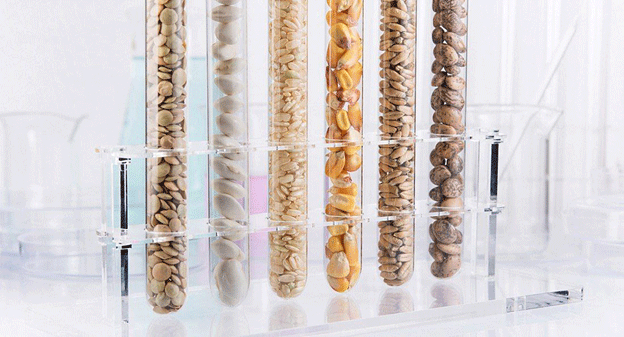Ensuring Safety: Radiation-Free Wheat, Corn, and Oil Confirmed by Advanced Testing
Short Description:
Over the past 10 months, 28,500 radiological tests have been conducted on agricultural products at the Novorossiysk branch of Russia’s Federal Center for Agricultural Product Safety and Quality Evaluation. These tests ensure that grains, oilseeds, and their derivatives for export and import meet strict safety standards. What do the results reveal about the safety of our food supply?
Article:
Keeping Food Safety at the Forefront
Food safety is paramount, particularly in a world where agricultural trade spans borders and continents. Radiological testing is a key component in safeguarding food products against contamination by harmful radionuclides such as strontium-90 and cesium-137, which can accumulate in bones and muscle tissue, respectively, posing significant health risks.
The Novorossiysk branch of the Federal Center for Agricultural Product Safety and Quality Evaluation has conducted 28,500 radiological tests on grains, legumes, oilseeds, and processed agricultural products over the first 10 months of this year. These rigorous tests evaluate both export-bound products and imports entering Russia to ensure compliance with stringent safety norms.
What the Data Says
Results from these extensive tests have confirmed that all samples analyzed are within permissible limits for radionuclide content. This is an encouraging sign for both consumers and exporters, as it reflects the safety of agricultural products in the region. For example:
- Grains and Oilseeds: Products such as wheat, corn, and sunflower oil were found to be radiation-free, ensuring they meet international standards for export to critical markets.
- Processed Products: Derived items such as oils and flours also passed safety checks, maintaining their suitability for both domestic consumption and global trade.
Eager to highlight the importance of these findings, Elena Belousova, Deputy Head of the Novorossiysk testing laboratory, explained, “Radiation is invisible and undetectable without specialized equipment. Certain radionuclides, like strontium-90 and cesium-137, can accumulate in the body, making it critical to control their levels in food products.”
Why Radiological Testing Matters
The demand for radiologically tested food products is growing globally. Events like the Fukushima disaster and concerns over radioactive contamination in specific regions have heightened awareness of the need for stringent testing. Products failing to meet these requirements often face trade barriers or reputational risks.
In Russia, the focus on radiological safety is part of a broader strategy to enhance the quality of agricultural exports, which have been gaining momentum in international markets. By adhering to rigorous safety standards, Russia can maintain its competitive edge while ensuring public health.
Conclusion
The findings from Novorossiysk’s radiological testing provide confidence in the safety of Russia’s agricultural products. As trade volumes increase, continued investment in testing infrastructure and protocols will be essential. These efforts not only ensure compliance with international safety standards but also bolster the reputation of Russian agriculture on the global stage.
Error





